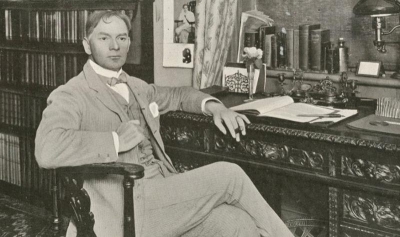Younus AlGohar
Navigating the Enigma: A Critical Analysis of Younus AlGohar
In the labyrinthine landscape of spiritual discourse, few figures command as much attention, controversy, and curiosity as Younus AlGohar. As the founder of Mehdi Foundation International and the Messiah Foundation International, AlGohar has carved out a unique niche for himself in the realm of mystical thought, drawing followers and skeptics alike into the orbit of his enigmatic persona.
At the heart of AlGohar's teachings lies a bold assertion: that he is the awaited Mehdi (Messiah) and the Promised One of all religions. This audacious claim forms the cornerstone of his message, attracting disciples from across the globe who are drawn to the promise of salvation and enlightenment. Yet, it is precisely this assertion that has invited scrutiny and skepticism from detractors who view AlGohar's self-proclaimed messiahship as nothing more than a delusion of grandeur.
Central to AlGohar's teachings is the concept of Divine Love, which he espouses as the universal remedy for the spiritual malaise afflicting humanity. Through his lectures, writings, and public appearances, he exhorts his followers to transcend the limitations of dogma and ritual, and to embrace a path of love, tolerance, and compassion. While this message resonates deeply with many, others question the sincerity of AlGohar's intentions, accusing him of exploiting the vulnerability of his followers for personal gain.
Moreover, AlGohar's teachings have been the subject of controversy within the Muslim community, with clerics and scholars denouncing him as a heretic and false prophet. His unorthodox interpretations of Islamic scripture and his rejection of traditional religious authorities have earned him the ire of religious conservatives, who view his teachings as a dangerous deviation from orthodox Islam.
Yet, despite the skepticism and opposition he faces, AlGohar continues to attract followers and to expand his global reach through a network of websites, social media platforms, and international events. His message of love and spiritual liberation resonates with individuals disillusioned by traditional religious institutions, offering them a sense of belonging and purpose in an increasingly fragmented world.
In the final analysis, Younus AlGohar emerges as a complex and polarizing figure, whose teachings inspire both fervent devotion and vehement opposition. Whether viewed as a visionary sage or a charismatic charlatan, his impact on the spiritual landscape is undeniable. As his followers continue to multiply and his influence spreads, the enigma of Younus AlGohar remains an enduring mystery, inviting us to probe deeper into the complexities of faith, belief, and the human quest for meaning.

 Такова жизнь... Лучшее от Джерома К. Джерома
Такова жизнь... Лучшее от Джерома К. Джерома
 Курский губернатор запретил мигрантам работать таксистами
Курский губернатор запретил мигрантам работать таксистами
 Комбинезон — база летнего гардероба: вот 5 идей, как его носить
Комбинезон — база летнего гардероба: вот 5 идей, как его носить
 В Приморье продолжается расследование крупного уголовного дела, в которое вовлечены функционеры «Восточной верфи»
В Приморье продолжается расследование крупного уголовного дела, в которое вовлечены функционеры «Восточной верфи»
